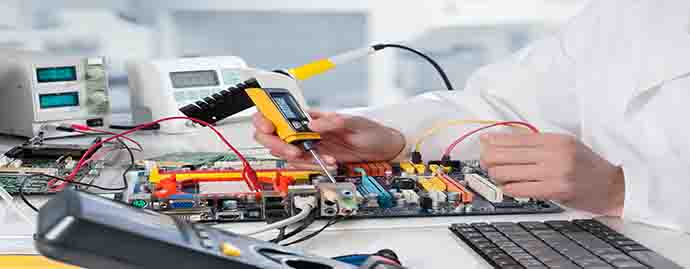| Start Date | End Date | Country | City |
|---|

 +966 920007771
+966 920007771

Objectives
Upon completion of the course participants will be able to:
o Specify protection requirements for motors
o Maintain electrical motors
o Specify speed control requirements for motors
o Understand essentials of motors and drives
o Detail the main issues with testing of motors
o Prevent or at least minimise motor bearing failure
o Troubleshoot and fix faults on motors and drives
o Interface control circuits of motors with PLC’s/DCS’s
o Reduce downtime on electrical motors
o Improve plant safety
o Improve plant throughput
o Reduce your spares usage and requirements
Outlines
Day 1:
• Fundamentals of Motor Technology and Construction
• Basic principles of rotating electric machines
• Fundamental principles of speed control
• Efficiency, torque, inertia, horsepower/power factor
• Torque-speed curves
• Induction/synchronous/wound rotor types
• Basic construction and physical configuration, windings
• Principles of operation and performance
• Three Phase Ac Induction Motors
• Components
• Theory of operation
• Induction motor design
• Duty cycles
• Insulation and Cooling requirements
• Starting methods
• Selecting motors
• Types of faults, fault finding and testing of AC machines
• Testing instrumentation
Day 2:
• Energy Losses and Efficiency of Three Phase Ac Induction Motors
• Standards
• Types of Losses
• Tests for measurement and computation of losses and efficiency
• Dynamometers
• Principles of load application by braking
• Torque measurement basics
• Types of practical dynamometers
• Motor Failure Analysis
• Frequent starts
• High inertia
• Inadequate cooling
• Congestion on fan cover
• Improper spacing at end of motor
• Incorrect belt alignment
• Solid belt guards
• Excessive loading causing bearing clearance problems
• Insulation failures
• Bearing current problems
Day 3:
• Testing
• Insulation life and resistance
• Polarization index
• DC Hipot
• DC ramp test
• AC hipot
• Capacitance test
• Dissipation factor
• Partial Discharge
• Surge test
• Mechanical testing
• Online testing
• Bearing Failure Analysis
• Bearing failures
• Grease and greasing
• Belt Drive aspects
• Balance
• Storage issues
• Service factor loading
• Protection Of Motors
• Thermal overload
• Time constraints
• Early relays and new digital relays
• Starting and stalling conditions
• Over Current / Overload
• Under-voltage / Over-voltage
•
Day 4:
• Under frequency
• Pole slip / Out of step
• Loss of excitation
• Inadvertent energization
• Over fluxing
• Stall protection / acceleration time / Start up supervision /Time between starts
• Unbalanced supply voltages
• Negative sequence currents
• De-rating factors
• Earth faults – core balance, residual stabilising resistors
• Calculation of protective relay settings
• Motor Control
• Power Circuit
• Control Circuit
• Full Online voltage starting
• Reduced voltage starting
• Delta-star
• Resistance
• Reactor
• Autotransformer
• Soft start
• Braking
• Speed Control
• Reversing
Day 5:
• Control System For Ac Variable Speed Drives
• Overall control system
• Power supply for the control system
• Dc Bus charging system
• VSD control loops (Open Loop/Closed loop)
• Vector control
• Current feedback in ac variable speed drives
• Speed feedback from motor
• Installation And Fault Finding
• General installation and environmental requirements
• Power supply connections and earthing
• Where to install contactors in power circuit
• Installation of ac converters into metal enclosures
• New Technologies and Developments
• Summary, Open Forum and Closing
Who Should Attend
• Anyone associated with the use of electrical motors in the industrial or automation environment. The course will also benefit those working in system design as well as site commissioning, maintenance and troubleshooting.
• Plant Engineers
• Instrument Technicians
• Engineering and design personnel
• Operations personnel
• Electrical Maintenance Technicians
• Instrument and Control Engineers
• Electrical Contractors
• Electrical consulting engineers
• Process control Engineers
• Mechanical Engineers
• Service Technicians
• Maintenance Personnel
• Electrical Maintenance Supervisors
Duration
10 Days










